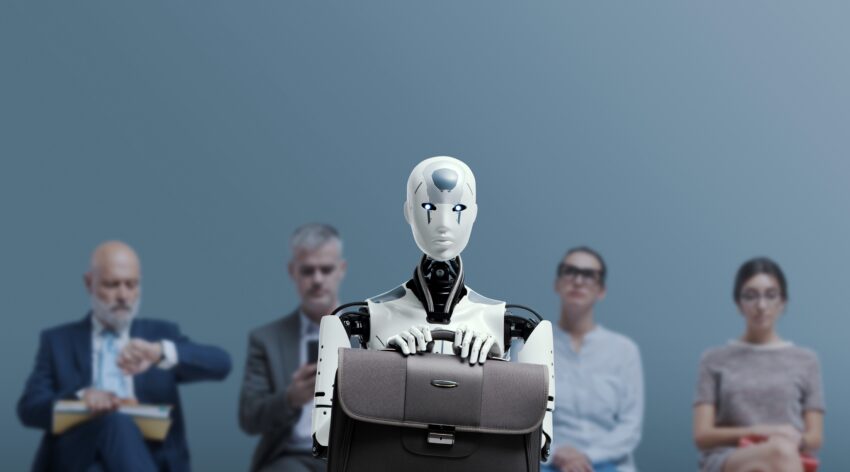Over 1,300 experts have signed an open letter affirming that artificial intelligence (AI) is a “force for good” and not a threat to humanity. The letter was organized by BCS, the Chartered Institute for IT, as a response to the prevailing “AI doom” narrative. Rashik Parmar, CEO of BCS, stated that the letter demonstrates that the UK tech community does not subscribe to the notion of “evil robot overlords” as a nightmare scenario.
The letter serves as a counterpoint to a previous letter signed by tech leaders, including Elon Musk, which called for a pause in the development of powerful AI systems. That letter suggested that super-intelligent AI posed an “existential risk” to humanity, a sentiment shared by film director Christopher Nolan. However, the BCS takes a more optimistic view of AI while supporting the need for regulations surrounding its use.
Richard Carter, founder of an AI-powered startup cybersecurity business and a signatory of the BCS letter, dismisses the dire warnings about AI’s existential threat to humanity as unrealistic. Carter believes that such notions are far-fetched and that the technology is currently not advanced enough to pose such risks.
Signatories to the BCS letter come from various backgrounds, including business, academia, public bodies, and think tanks. Although none are as well-known as Elon Musk or major AI company leaders like OpenAI, those interviewed by the BBC emphasize the positive applications of AI. Hema Purohit, who leads digital health and social care for the BCS, highlights AI’s role in detecting serious illnesses and accelerating drug testing. Sarah Burnett, another signatory, points to agricultural uses of AI, such as robots that use the technology to pollinate plants and identify and eliminate weeds.
The letter calls for the UK to take a leading role in establishing professional and technical standards for AI roles, backed by a robust code of conduct, international collaboration, and well-resourced regulation. The authors believe that through these efforts, Britain can become a global leader known for high-quality, ethical, and inclusive AI.
In the coming autumn, UK Prime Minister Rishi Sunak will host a global summit on AI regulation, indicating the government’s recognition of the need for comprehensive guidelines in this rapidly advancing field.
While the BCS argues against the notion of existential threats, it acknowledges that certain challenges are on the horizon or already present. The automation of up to 300 million jobs has been predicted, and some companies have announced hiring pauses in response to AI. However, experts like Richard Carter believe that AI will enhance human productivity rather than replace workers entirely. They stress the importance of human involvement in managing accountability for potential catastrophic events, as completely removing humans from the loop poses challenges.
The signatories of the letter emphasize the necessity of regulations to prevent the misuse of AI. They underscore the importance of testing, governance, and assurance to ensure the responsible development and deployment of AI technologies.
The call for regulations in the deployment of AI technologies stems from the recognition that, while AI holds immense potential for positive impact, it also carries risks that must be addressed. The letter signatories understand the need for a balanced approach that promotes innovation while safeguarding against potential harm.
The concerns raised by experts regarding the impact of AI on jobs and the workforce are not taken lightly. It is acknowledged that automation may lead to job displacement, and some companies have already made adjustments to their hiring practices due to AI implementation. However, proponents of AI, such as Richard Carter, argue that rather than replacing humans, AI will enhance productivity and create new opportunities for collaboration between humans and machines.
The issue of accountability is also at the forefront of discussions surrounding AI regulation. While AI systems can achieve remarkable feats, they are not infallible. The potential for catastrophic events necessitates human involvement to ensure accountability and manage any unforeseen consequences. Striking the right balance between human oversight and the capabilities of AI systems becomes crucial in avoiding undue reliance on technology without proper safeguards.
The signatories of the letter advocate for regulations that promote responsible development and usage of AI. The importance of comprehensive testing, governance, and assurance measures cannot be overstated. Establishing professional and technical standards for AI roles, as well as a robust code of conduct, will contribute to creating an ethical and inclusive AI ecosystem.
The UK government’s decision to host a global summit on AI regulation demonstrates a commitment to addressing the complex challenges associated with AI deployment. Such a summit provides a platform for international collaboration, where experts and policymakers can come together to discuss and formulate guidelines that ensure the responsible growth and use of AI technologies.
As the field of AI continues to evolve, the discussions surrounding its impact on society, the workforce, and ethics will persist. The views expressed in the BCS open letter contribute to a broader conversation that acknowledges the potential of AI while advocating for caution, oversight, and regulations that align with the values of high-quality, ethical, and inclusive AI development.
